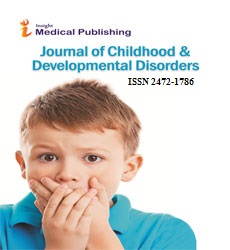Abstract
Heterogeneity of Developmental Dyscalculia: Cases with Different Deficit Profiles
Context: The aim was to further understand the heterogeneity of developmental dyscalculia (DD). Utilizing four children (8-9 year-old) performance was contrasted against predominant hypotheses of DD. Case report: Despite showing similar mathematical deficits, these children showed remarkable inter-individual variability regarding cognitive profile and deficits. Two cases were consistent with the approximate number system deficit account, and the general magnitude-processing deficit account. One case had an access deficit in combination with a general cognitive deficit. One cases suffered from general cognitive deficits only. Conclusion: The results showed that DD cannot be attributed to a single explanatory factor. These findings support a multiple deficits account of DD and suggest that some cases have multiple deficits, whereas other cases have a single deficit. We discuss a previously proposed distinction between primary DD and secondary DD, and suggest hypotheses of dysfunctional neurocognitive correlates responsible for the displayed deficits.
Author(s):
Ulf Träff, Linda Olsson, Rickard Östergren and Kenny Skagerlund
Abstract | Full-Text | PDF
Share this

Google scholar citation report
Citations : 504
Journal of Childhood & Developmental Disorders received 504 citations as per google scholar report
Abstracted/Indexed in
- Google Scholar
- China National Knowledge Infrastructure (CNKI)
- Directory of Research Journal Indexing (DRJI)
- WorldCat
- Publons
- Geneva Foundation for Medical Education and Research
- Secret Search Engine Labs
- Euro Pub
Open Access Journals
- Aquaculture & Veterinary Science
- Chemistry & Chemical Sciences
- Clinical Sciences
- Engineering
- General Science
- Genetics & Molecular Biology
- Health Care & Nursing
- Immunology & Microbiology
- Materials Science
- Mathematics & Physics
- Medical Sciences
- Neurology & Psychiatry
- Oncology & Cancer Science
- Pharmaceutical Sciences

